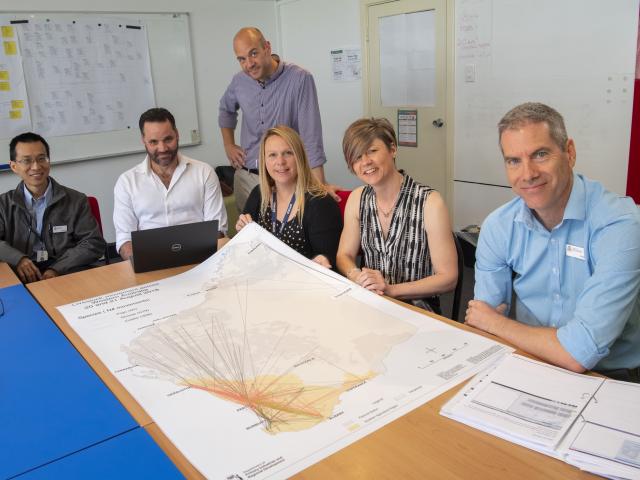Improved system to manage stock brand registrations

Department of Primary Industries and Regional Development (DPIRD) registrations of WA’s livestock owners and beekeepers will be enhanced this year with the commencement of a project to develop this service using the same IT platform as the Department’s commercial fishing licences.
Livestock Biosecurity Director Peter Gray said his team has been exploring options to remediate the ageing ‘Brands database,’ which was developed over 20 years ago to record information relating to livestock ownership, beekeepers and properties where livestock are kept.
“The option of developing a bespoke system in-house was too expensive, so after the amalgamation we explored what other systems DPIRD had that could be used. That’s when we came across the Navigate solution, which is being successfully used for commercial fishing licences in DPIRD,” Dr Gray said.
"Registering owners of livestock and where livestock are kept is the cornerstone of our traceability system, which protects the biosecurity and food safety of livestock and livestock products."
To demonstrate the significance and complexity of livestock movement, the map in the above photo reveals over 100,000 sheep, cattle and pigs moved through the supply chain in WA on 20-21 August 2018. DPIRD’s Biosecurity team regularly undertakes audits at saleyards and abattoirs to ensure that supply chain participants are recording these movements accurately and in a timely manner.
Leading the cross-DPIRD project team is Donna McNeill, who recently brought all key stakeholders together for a requirements workshop.
“Brands registrations have almost doubled in the past 10 years, so we need to be prepared to effectively manage this and any future increases,” Mrs McNeill said.
“Integrating the systems and using one platform across the Department will help us better align business areas, and align with our machinery of government strategy,” Mrs McNeill said.
“It’s a great example of how synergies across DPIRD can work to strengthen knowledge and resource sharing.”
The project is being supported with funding from the Royalties for Regions Boosting Biosecurity Defences project.
